- To save this word, you'll need to log in. Log In
package tour

Definition of package tour
Examples of package tour in a sentence.
These examples are programmatically compiled from various online sources to illustrate current usage of the word 'package tour.' Any opinions expressed in the examples do not represent those of Merriam-Webster or its editors. Send us feedback about these examples.
Dictionary Entries Near package tour
package store
Cite this Entry
“Package tour.” Merriam-Webster.com Dictionary , Merriam-Webster, https://www.merriam-webster.com/dictionary/package%20tour. Accessed 29 Jun. 2024.
Subscribe to America's largest dictionary and get thousands more definitions and advanced search—ad free!

Can you solve 4 words at once?
Word of the day.
See Definitions and Examples »
Get Word of the Day daily email!
Popular in Grammar & Usage
Plural and possessive names: a guide, your vs. you're: how to use them correctly, every letter is silent, sometimes: a-z list of examples, more commonly mispronounced words, how to use em dashes (—), en dashes (–) , and hyphens (-), popular in wordplay, it's a scorcher words for the summer heat, flower etymologies for your spring garden, 12 star wars words, 'swash', 'praya', and 12 more beachy words, 8 words for lesser-known musical instruments, games & quizzes.

Understanding Package Tours in the Travel Industry
In the vibrant world of travel and tourism, a package tour is a pre-arranged holiday that combines a variety of travel services into one comprehensive package. These services typically include transportation, accommodation, meals, guided tours, and other amenities. Package tours are popular among travelers seeking convenience, affordability, and a stress-free vacation experience. Let's delve deeper into the concept of package tours and explore the key components that make them a preferred choice for many globetrotters.
Components of a Package Tour
A typical package tour includes several key components that are carefully curated to provide travelers with a seamless and enjoyable vacation experience. These components may vary depending on the destination, duration, and theme of the tour, but the following are some common elements found in most package tours:
- Transportation: Package tours often include round-trip transportation from the traveler's home to the destination. This may involve flights, train tickets, bus transfers, or other modes of transportation.
- Accommodation: Accommodation is a crucial part of any package tour. Travelers are typically provided with pre-booked hotel rooms, resorts, or other types of lodging that meet the tour's standards and budget.
- Meals: Many package tours include meal plans that cover breakfast, lunch, and dinner. These meals may be served at the hotel, local restaurants, or as part of guided tours.
- Guided Tours: To enhance the travel experience, package tours often include guided tours of popular attractions, historical sites, cultural landmarks, and other points of interest. Knowledgeable guides provide valuable insights and ensure that travelers make the most of their visit.
- Activities and Excursions: Depending on the tour package, travelers may have the opportunity to participate in various activities and excursions such as adventure sports, sightseeing tours, shopping trips, and cultural experiences.
- Transportation Within Destination: Package tours may also include transportation within the destination, such as airport transfers, shuttle services, or private vehicles for sightseeing.
- Travel Insurance: Some package tours offer optional or mandatory travel insurance to protect travelers against unforeseen circumstances such as trip cancellations, medical emergencies, or lost luggage.
Types of Package Tours
Package tours come in a variety of forms to cater to different preferences, budgets, and travel styles. Here are some common types of package tours that travelers can choose from:
- All-Inclusive Tours: These tours cover all major expenses, including transportation, accommodation, meals, activities, and sometimes even gratuities. Travelers can enjoy a hassle-free vacation without worrying about additional costs.
- Adventure Tours: Adventure tours are designed for thrill-seekers and outdoor enthusiasts who enjoy activities such as hiking, trekking, rafting, and wildlife safaris. These tours often include adrenaline-pumping experiences in exotic locations.
- Cultural Tours: Cultural tours focus on exploring the history, art, cuisine, and traditions of a destination. Travelers have the opportunity to immerse themselves in the local culture through visits to museums, historical sites, festivals, and interactions with residents.
- Luxury Tours: Luxury tours offer a premium travel experience with upscale accommodation, fine dining, exclusive amenities, and personalized services. These tours cater to travelers seeking a high level of comfort and sophistication.
- Group Tours: Group tours bring together a group of like-minded travelers who share a common interest in exploring a particular destination. These tours offer camaraderie, shared experiences, and the opportunity to make new friends along the way.
- Customized Tours: Some travel companies offer customized package tours that allow travelers to tailor the itinerary, activities, and accommodations to suit their preferences. This option is ideal for travelers looking for a personalized and flexible travel experience.
Benefits of Package Tours
Package tours offer several benefits that make them an attractive choice for travelers looking for a hassle-free and enjoyable vacation experience. Some of the key benefits of opting for a package tour include:
- Convenience: Package tours take the stress out of travel planning by bundling all essential services into one comprehensive package. Travelers can relax and enjoy their vacation without worrying about making individual arrangements for transportation, accommodation, and activities.
- Affordability: Package tours often provide cost savings compared to booking each component separately. Travel companies can negotiate discounted rates with airlines, hotels, and attractions, enabling travelers to enjoy a budget-friendly vacation without compromising on quality.
- Expertise: Package tours are curated by travel experts who have in-depth knowledge of the destination, local attractions, and cultural nuances. Travelers benefit from the expertise of guides and tour operators who ensure a well-rounded and enriching travel experience.
- Safety and Security: Traveling with a reputable tour company offers an added layer of safety and security. Tour operators have emergency protocols in place, experienced guides to assist travelers, and 24/7 support to address any unforeseen issues that may arise during the trip.
- Time-Saving: Package tours are designed to maximize the traveler's time by providing a well-structured itinerary with carefully planned activities and sightseeing opportunities. Travelers can make the most of their vacation without wasting time on logistics or decision-making.
- Local Insights: Guided tours included in package tours offer valuable insights into the destination's history, culture, and traditions. Travelers have the opportunity to learn from local experts and gain a deeper understanding of the places they visit.
Package tours are a popular choice for travelers seeking a convenient, affordable, and enriching vacation experience. By bundling transportation, accommodation, meals, guided tours, and other services into one comprehensive package, travelers can enjoy a stress-free journey with expert guidance and local insights. Whether you prefer adventure tours, cultural experiences, luxury getaways, or customized itineraries, there is a package tour to suit every taste and budget. So, the next time you plan your dream vacation, consider the benefits of a package tour and embark on a memorable journey filled with unforgettable experiences.
- Up to 7-Day Itineraries
- Maps Integration
- PDF Downloads
- Standard support
- Everything in Basic Plan and
- Up to 14-Day Itineraries
- Personalized packing lists
- Additional itinerary details (hotels, transportation, travel requirements, local sayings, etc.)
- Ad-free experience
$3 / month or $30 / year (Save $6)
€2.76 / month or €27.60 / year (Save €5.52) £2.37 / month or £23.70 / year (Save £4.74) ₹249.00 / month or ₹2,490.00 / year (Save ₹498.00)
- Everything in Plus Plan and
- Up to 30-Day Itineraries See Example
- Smartest AI with latest updates
- Private Itineraries
$5 / month or $50 / year (Save $10)
€4.60 / month or €46.00 / year (Save €9.20) £3.95 / month or £39.50 / year (Save £7.90) ₹415.00 / month or ₹4,150.00 / year (Save ₹830.00)
"This is super cool. I did three days in a relatively small town, and it came up with a nice sounding trip (relaxation focused)."
- Redditor StillKickinginAZ
"This is incredible"
- Jenny Turner
"This is so awesome! We hired a travel agent for $200 and your AI just spit out almost exactly the same itinerary the agent planned for our honeymoon in Greece!"
Share Itinerary
Welcome to Lake
Discover places to stay and unique experiences around the world.
- How It Works
Home - Blog - How to Make Tour Packages: Your Step-by-Step Guide
How to Make Tour Packages: Your Step-by-Step Guide

David Ciccarelli
January 19, 2024
In this article
Get started.

In today’s digital world, mastering how to make tour packages has become fundamental for tour operators seeking to grow their business. Recognizing the shift towards online bookings, offering an array of compelling tour packages enables potential guests to weigh their options effortlessly, seeking out the best experiences that align with their interests and budget. Tour packages that provide convenience and value not only stand out in the crowded market but also pave the way for stronger revenue streams and memorable experiences for your clientele.
Understanding what to include in tour packages can be daunting, but with a systematic approach, you can assemble offers that guests find irresistible. Whether it’s a tranquil getaway or an adventure-packed excursion, the right combination of elements in your tour package can make the decision-making process a breeze for travelers, resulting in satisfied customers and repeat business for you.
How to Make Tour Packages: Crafting Exceptional Experiences
Wondering how to elevate your travel offerings? Maybe you’ve pondered what makes some tour packages stand out in a crowded market. Good news, your quest ends here!
- Online Bookings – Hassle-free, secure reservation at your fingertips.
- Flexible Pricing – Deals that adapt to budgets and seasons .
- Outstanding Support – We’re here for you, every step of the way.
Remember, the ultimate tour experience is just a click away. Ready to transform your travel game?
Identifying Your Tour Package Audience
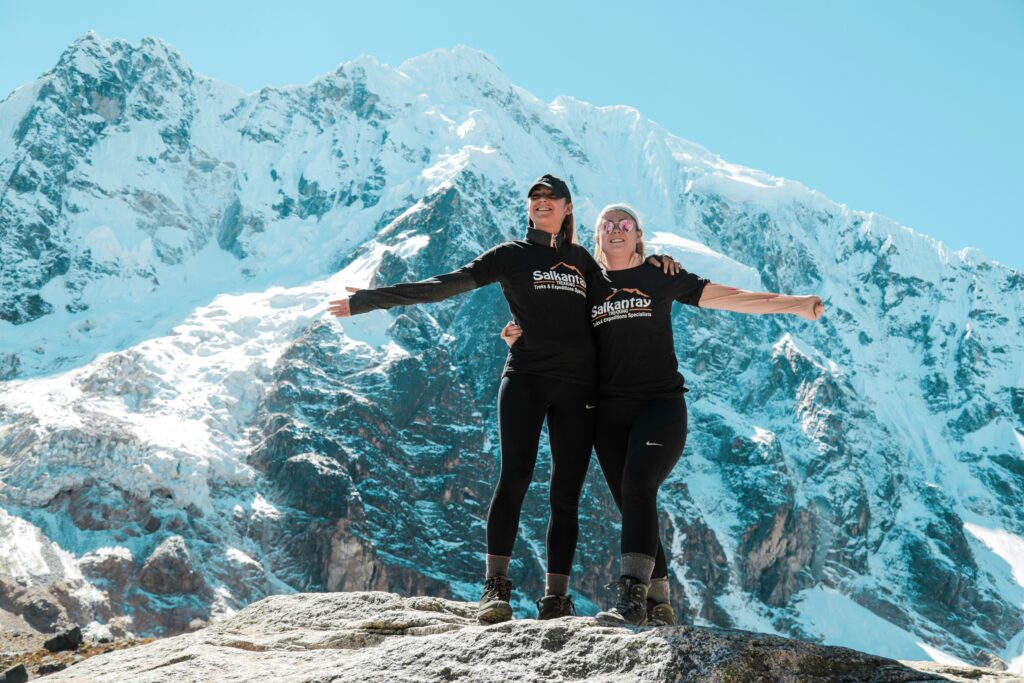
When forming tour packages, it’s crucial to consider who your offer will attract. Are you targeting:
- Adventure enthusiasts who crave excitement?
- Cultural aficionados in pursuit of enriching experiences?
- Couples on a romantic getaway?
- Individuals seeking the luxury of high-end travel?
- The older demographic preferring relaxed travel?
- Lone voyagers on a quest for solitude?
- Families with young children requiring kid-friendly activities?
Essentials of Tour Packages
When planning your getaway , what features do you expect a tour package to include? A powerful tour offering isn’t just about the destinations; it’s about forging a personal connection, ensuring that you feel the value and the excitement long before the journey begins.
Consider these key elements:
- Age Suitability : Is this adventure tailored for you or your family’s age group?
- Value : Does the pricing reflect the experiences offered, giving you the best bang for your buck?
- Accommodations : What type of lodging is included, if any? Comfort? Luxury?
- Duration : How many days of pure bliss or heart – pounding adventure can you expect?
- Activities & Partners : Are you looking for a single activity or a melange of experiences? Are respected companies involved?
- Tour Type : Are there options for the thrill-seeker, history buff, or family-friendly explorer?
The Importance of a Package Tour
Ever felt like you need a vacation from planning a vacation? Package tours swoop in as the hero, offering the sweet relief of convenience. Imagine simply showing up, with transportation, accommodations , and meals all set. Switch to vacation mode quicker, without the nitty-gritty of travel planning.
Why do travelers adore package tours? Here’s the scoop:
- Time Saver: No more endless searching for hotels or comparing flight prices. More time for you, less for logistics.
- All-Inclusive Experience: From your comfy hotel bed to that sunset cruise, it’s all wrapped up in one neat bundle.
- Increased Value: Worry less about costs adding up. The overall value of a package often outweighs individual bookings.
- Reduced Cancellations: Commit to fun! Secured plans mean you’re less likely to back out last minute.
- Community Vibes: Booking packages that partner with local businesses can inject a feel-good factor into your trip.
Remember, a calculated package deal can translate to significant savings for you while simultaneously lining the pockets of tourism businesses with healthy profits. It’s a win-win in the world of travel. Ready to pack your bags yet?
Key Elements of a Packaged Tour
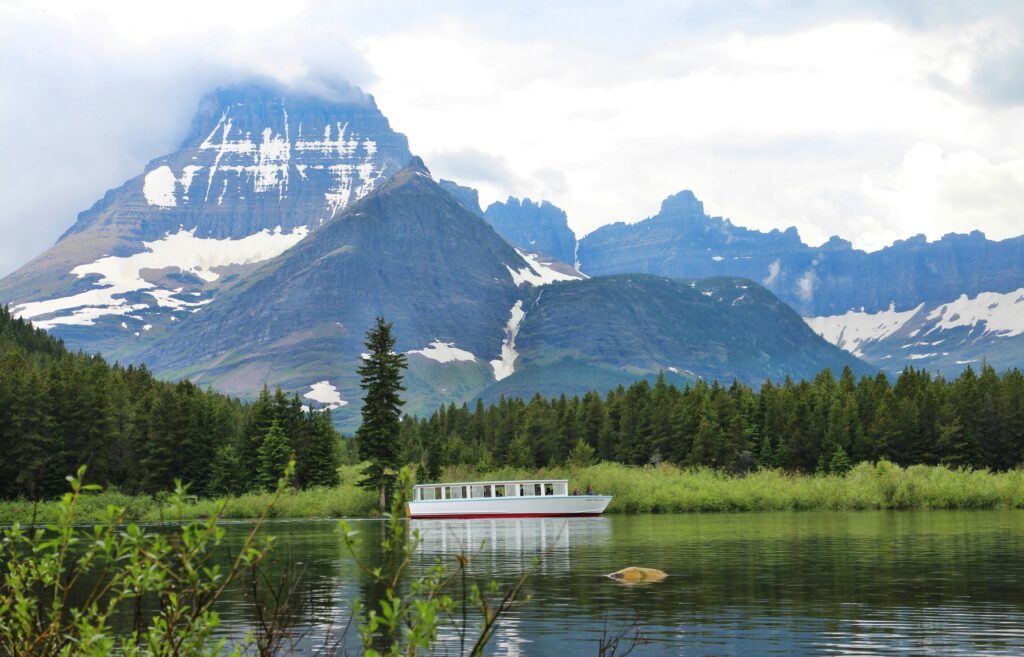
- Duration & Schedule : Your adventure, lasting from a day trip to extended stays , will have a well-defined timeline.
- Transportation & Accommodation : From flights to coaches, and hotels to unique lodgings, your journey’s comfort and convenience are considered.
- Guided or Self-Explored : Choose between having a knowledgeable guide or discovering the sights at your own pace.
- Included Activities : Adrenaline-pumping sports, tranquil cultural experiences, and exclusive events await.
- Group Size : Whether it’s cozy small groups or larger gatherings, your travel package adapts.
- Equipment & Extras : Necessary gear and potential add-ons enhance your experience without the hassle.
- Insurance Options : Ensure peace of mind with optional travel insurance for those ‘just in case’ moments.
Remember, ongoing offers and discounts can sweeten the deal of your travel package.
Crafting Your Ideal Tour Experience: A Guided Framework
Scouting the tour landscape.
Begin your tour-creating journey by examining the offerings within your industry and locality. To craft a tour that resonates with your target audience, consider:
- The unique aspects of your specific area and expertise.
- How your tour can differentiate itself within the marketplace.
Knowing what your competitors are doing is crucial; ensure your offerings incorporate distinctive elements that elevate your tour above others.
Timing is Everything
Designing a tour requires careful planning around duration and scheduling, knowing the ebb and flow of your business operations. Consider:
- The frequency of departures.
- The feasible duration of the tour for an enjoyable guest experience.
Every aspect of your tour’s timing should contribute to both your guests’ satisfaction and your business’s viability.
Tailoring the Tour Experience
Give your guests autonomy with a map and let them personalize the trip with optional add-ons. The customizations could include:
- Exclusive access to particular attractions.
- Tailored equipment rentals for a seamless adventure.
Empowering guests to tailor their experience can heighten the appeal of your tour package.
Price Point Strategies
Attracting groups through discounted rates could be a wise approach. When setting your prices, consider:
- Pricing structures that work best for your business model.
- Offering incentives for larger group bookings to maximize profitability.
Well-thought-out pricing can be the key to a successful tour package that appeals to a wide audience.
Visual Vividness
Use compelling photos and videos to showcase the allure of your tour packages. Keep in mind:
- Including images that allow potential guests to envision themselves on the tour.
- Highlighting exhilarating moments and picturesque scenery in your promotional material.
Visuals play a pivotal role in captivating your audience and can significantly boost your marketing efforts.
Collaborative Local Alliances
Partnering with other local operators can broaden your package’s appeal. Integrating complimentary activities offers your guests:
- Added convenience.
- A richer, more diverse travel experience.
These alliances not only benefit the guest but can also generate repeat business for your enterprise.
Amplifying Your Tours
Let the unique selling points of your offerings shine in your promotional efforts. Aim to:
- Emphasize the unique experiences only your tour package can provide.
- Convey the value and convenience of opting for a pre-arranged package over separate bookings.
Effective promotion involves highlighting the unique benefits that come with your tour package, contributing to an effortless and memorable vacation for your guests.
Remember, as a tour operator, you have the power to shape extraordinary travel memories. Each step you take to refine your tour package bolsters your guests’ experience, ensuring that each adventure is not just a trip but a story worth telling.
Finding Strategic Partners to Expand Your Tour Offerings
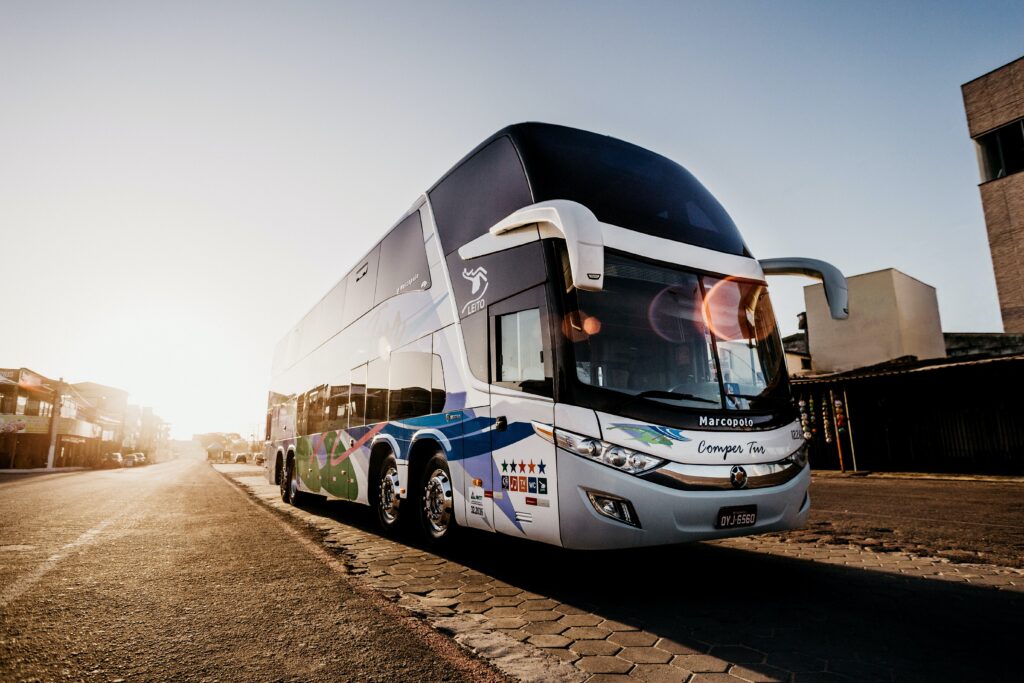
Looking to broaden the scope of your tour packages? Consider joining forces with local accommodations, top-notch restaurants, and other experience providers who align with your business ethos. Let’s say you run a travel agency and want to offer an all-encompassing experience – imagine pairing your thrilling city tours with a cozy bed-and-breakfast and the finest dining in town.
- Travel Agents : Tap into their network and offer your packages to a wider audience.
- Online Travel Agents (OTAs) : Increase your digital footprint and customer reach.
- Local Businesses : Collaborate for cross-promotion; think hotels offering your tour brochures in their lobbies.
- Wholesalers : They can package your tours with other services for a greater value proposition.
Final Thoughts
Crafting tour packages that resonate with travelers.
If you’re keen on curating tour packages that truly resonate with what travelers desire, consider your approach to content marketing . What makes your offerings gleam against a backdrop of options? It’s about more than presenting tours; it’s about narrating an experience that aligns with your audience’s travel fantasies.
Promotion must-haves :
- Regular website updates with engaging content
- Strategic marketing tools & campaigns
- SEO optimization to appear on Google search results
Sales Boosters :
- An easy-to-navigate booking system
- Package variations to encourage repeat bookings
Discover Versatile Reservation Tools
Ever found yourself swamped with managing bookings and wish there was a simpler way? Meet today’s top-tier online booking systems that are winning over businesses with their ease of use and seamless integration capabilities.
- Instant Efficiency : With a click, manage your reservations.
- Streamlined Services : Simplifies your booking process , effortlessly.
- Flexible Features : Adapts to your unique business needs.
Statistics show that businesses utilizing advanced reservation systems see a significant increase in bookings , often by as much as 20%.
Essential Components for a Captivating Tour Itinerary
Key items to include in your tour itinerary.
To capture the interest of travelers, your tour itinerary should be comprehensive and engaging. Essential elements include:
- Compelling Descriptions : Paint a vivid picture of the destinations to stir excitement.
- Varied Activities : Cater to different interests with a mix of cultural, recreational, and relaxing options.
- Clear Timelines : Provide a well-structured timeline that outlines the daily schedule while allowing for some flexibility.
- Logistical Details : Include information on transportation, meeting points, and accommodation options.
Tactics for Effective Marketing of Travel Packages
Harness various marketing strategies to attract travelers:
- Leverage Social Proof : Display reviews and testimonials as evidence of satisfied customers.
- Engage Through Storytelling : Share stories and experiences from past travelers to build a connection.
- Utilize Visual Content : High-quality images and videos can be powerful in showcasing your packages.
Innovative Promotion Methods for Tour Packages
To reach a broader audience, get creative with your promotions:
- Collaborations : Team up with influencers or local businesses to tap into new networks.
- Exclusive Events : Host webinars or live Q&A sessions to engage potential customers.
- Contests and Giveaways : Encourage sharing and participation for increased visibility.
Constructing a Package Tour That Captivates
When designing your package tour, consider the following steps:
- Define Your Audience : Know who you are designing the tour for.
- Curate Unique Experiences : Differentiate your offering with unique experiences.
- Price Competitively : Position your pricing based on the value offered.
- Pay Attention to Detail : Every component, from meals to activity duration, adds value.
Building Stand-Out Packages in the Travel Market
Travel agents aiming to excel in the market should focus on:
- Personalization : Offer customizable options so clients can tailor their experience.
- Diverse Offerings : Appeal to various niches like adventure travel or eco-tourism.
- Professional Touch : Present the packages in a high-quality, informative brochure.
Calculating Tour Package Costs Effectively
When pricing your tour packages, be mindful of:
- All-Inclusive Costs : Consider all expenses from transportation to entry fees.
- Profit Margin : Set a margin that reflects the quality of the experience while remaining competitive.

administrator
David Ciccarelli, is the Founder and CEO of Lake. He is based in Toronto, Canada, and is an expert in management, business administration, strategy, product development, and customer experience. His educational achievements include the Owner President Management Program at Harvard Business School (2019-2022) and the QuantumShift Program at Ivey Business School in 2017, aimed at CEOs of growing businesses.
- Tour Packages
Related Posts

October 29, 2023
Preparing Your Vacation Rental for Emergency Situations
While not expected, emergency situations may arise at your vacation rental. As such,...
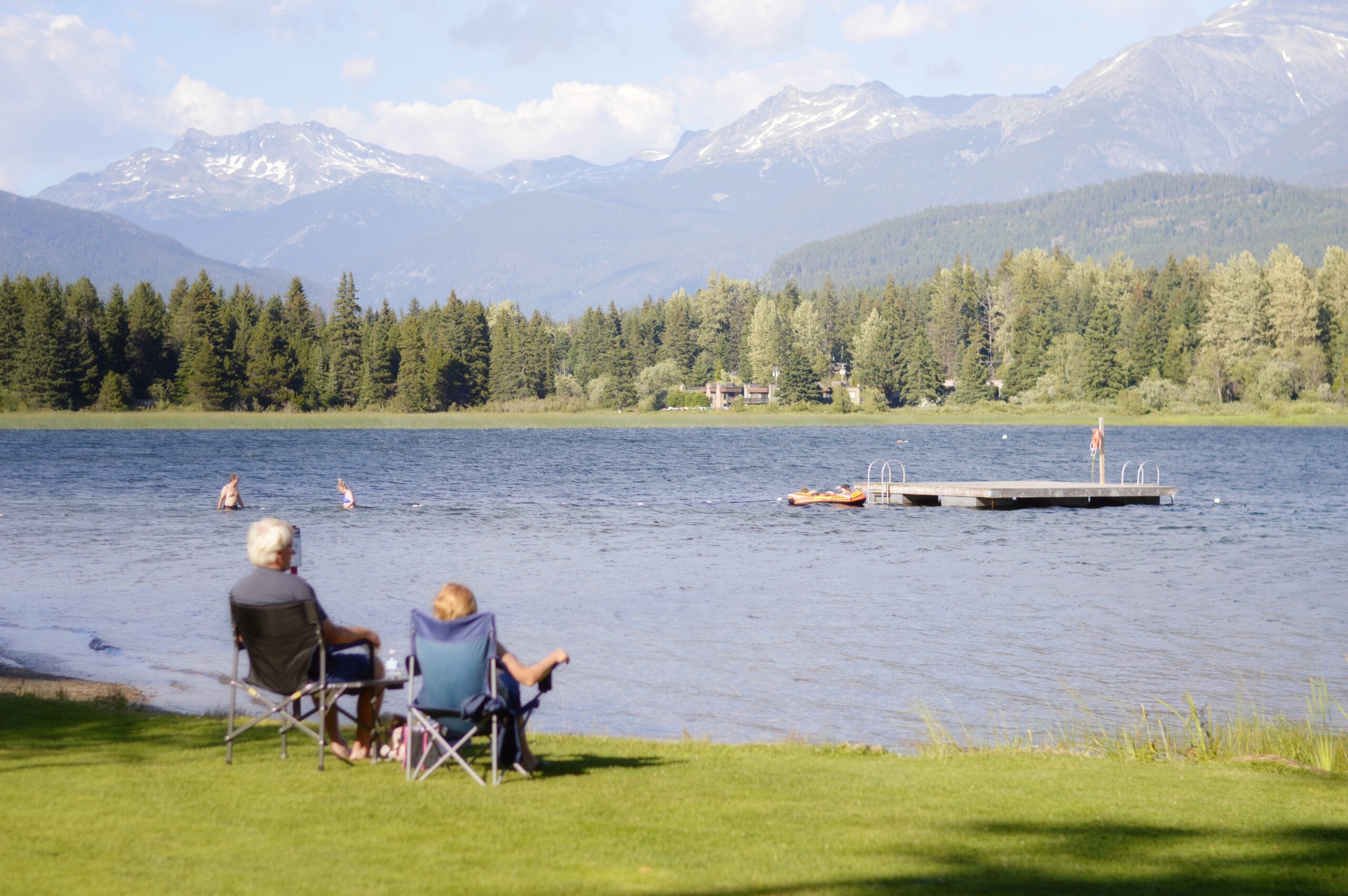
December 21, 2023
Vacation Rental Pricing Tools: Optimize Your Income with Smart Strategies
Striking the right balance with your Airbnb listing price can be a puzzling game. Are your...
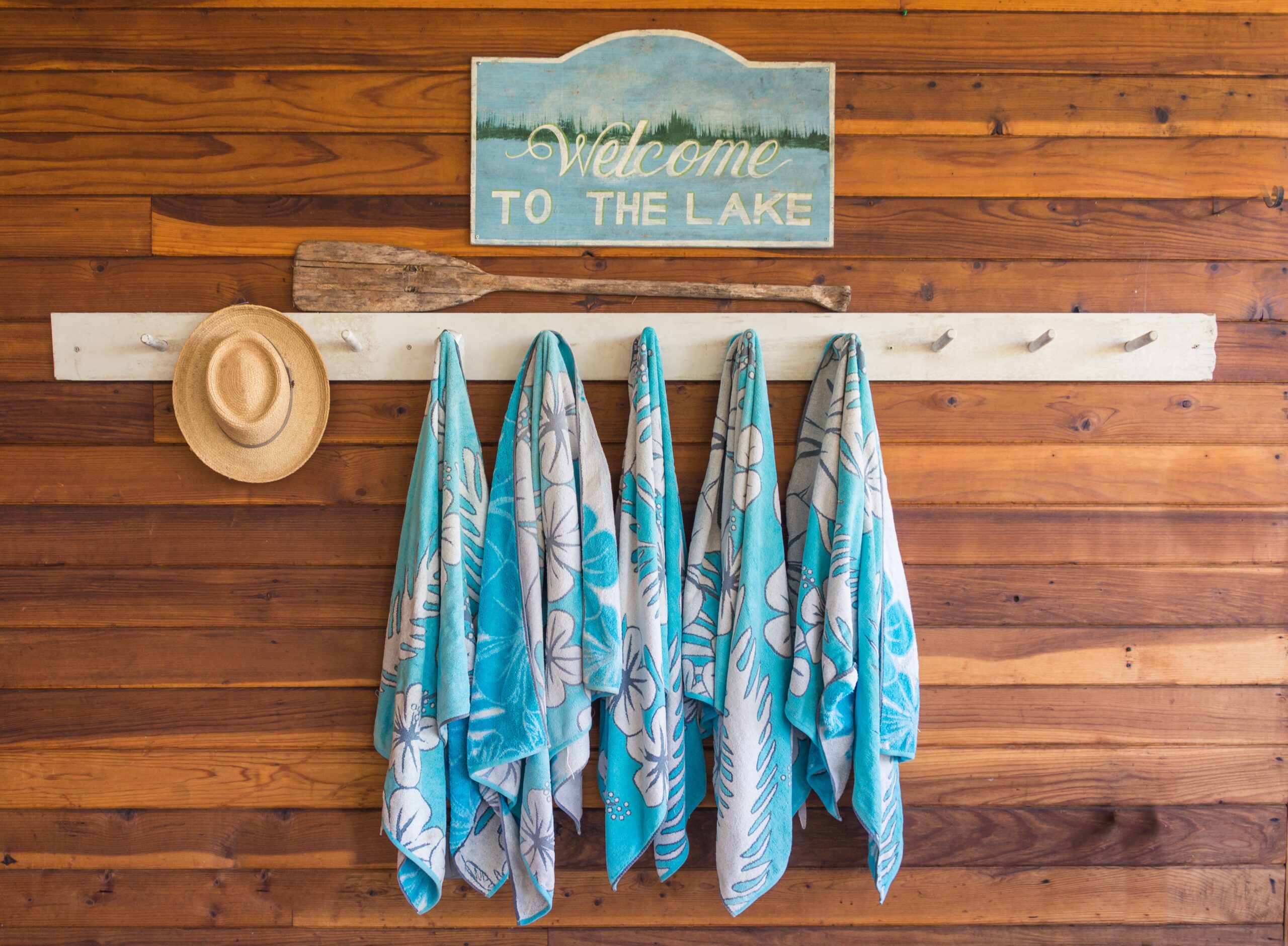
January 3, 2024
Vacation Rental Welcome Book: Crafting the Perfect Welcome for Guests
Thinking of hosting your lake house on Lake? Here is everything you need to know to create...
Don't have an account yet? Register
Already have an account? Sign In
Reset Password
Please enter your username or email address, you will receive a link to create a new password via email.

What Does a Tour Package Include? Essential Components Explained
When planning a trip, it can be challenging to organize all the necessary details, including accommodation, transportation, meals, and activities. This is where a tour package comes in handy, as it includes all these elements in one convenient package. This blog post will explain what a tour package entails, the available types, and how to choose the right one.
Table of Contents
What does a tour package include?
- Accommodation: A tour package typically includes accommodation in a hotel, resort, or other lodging facilities. The type of accommodation provided will depend on the tour package you select.
- Transportation: Transportation is another essential component of a tour package. It can include flights, trains, buses, and even private cars or vans. The mode of transportation provided will depend on the tour package you select.
- Meals: Most tour packages include breakfast only to all-inclusive dining. The number and type of meals provided will depend on the tour package you select.
- Activities: A tour package may include various activities such as sightseeing, cultural experiences, adventure sports, or shopping. The type and number of activities included will depend on your selected tour package.
- Itinerary: A tour package will provide you with a detailed itinerary of your trip, including the date, time, and location of each activity, as well as any free time you may have.
Types of tour packages
- Inclusive tour package: This type of tour package includes accommodation, transportation, meals, and activities, all for a fixed price.
- All-inclusive travel package: This tour package is similar to the inclusive package, but it also includes drinks, tips, and other extras.
- Budget tour package: This package is designed for those who want to travel on a tight budget. It usually includes basic accommodation and transportation but limited activities and meals.
- Customized tour package: This package allows you to choose the specific activities and accommodations you want, giving you more control over your travel experience.
- Luxury tour package: This tour package provides premium accommodation, transportation, meals, and activities for a higher price.
How to choose the right tour package?
Choosing the right tour package can be a daunting task, but here are some tips to help you make the best decision:
- Budget: Determine your budget and look for tour packages that fit within it. Remember that a higher price may mean better quality, but finding a balance between affordability and quality is essential.
- Destination: Consider the destination you want to visit and choose a tour package that offers the best experience in that location. Look for packages that include the attractions you want to see and the activities you want to do.
- Travel Style: Think about your travel style and the type of experience you want. Do you prefer a leisurely vacation or an adventure-packed trip? Make sure to choose a tour package that aligns with your travel style.
- Reviews and recommendations: Read reviews and ask for recommendations from friends or family who have traveled with a tour package before. This can give you insight into the tour package’s quality and other travelers’ experiences.
In conclusion, choosing a tour package can make travel planning more manageable and less stressful. With various tour packages available, selecting the one that aligns with your budget, destination, travel style, and preferences is crucial. When selecting a tour package, read reviews and consider recommendations from other travelers. By following these tips, you can have a stress-free and enjoyable travel experience.
Similar Posts
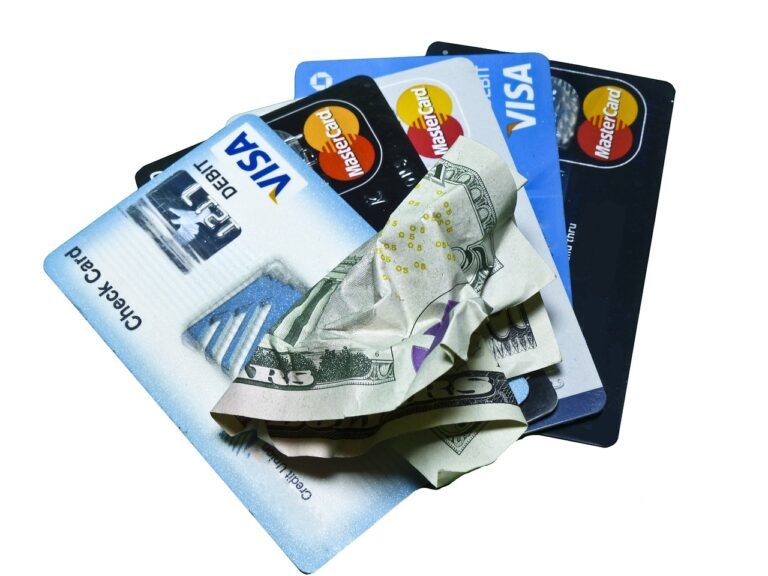
How travel credit cards work and How To Use Them Wisely
The Basics of Travel Credit Cards: How They Work and How To Use Them Wisely Photo by TechPhotoGal on…
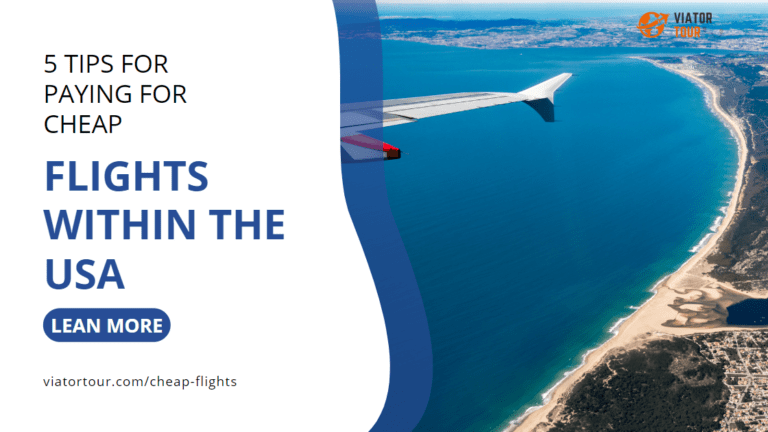
5 Tips for Paying for Cheap Flights Within the USA
Many travelers see domestic flights as something that is out of reach. After all, who wants to pay for…

Is it Cheaper to Pre-Book Excursions? Tips for Cost-Effective Travel
Traveling to different destinations can be a great way to explore new cultures, meet new people, and experience unforgettable…
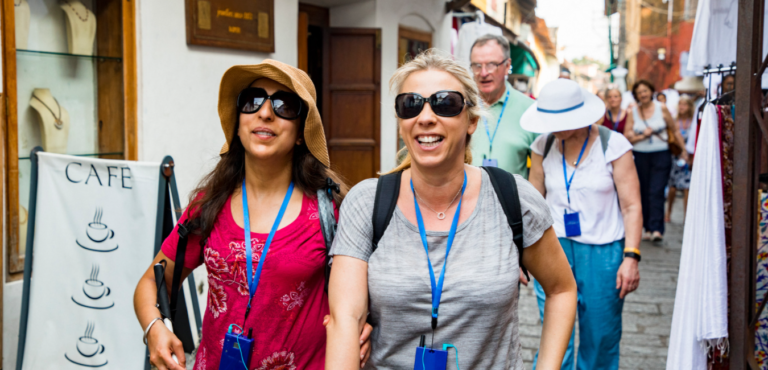
My Daily Travel Blog To Inspire And Get You Motivated!
The joy of traveling knows that you can go anywhere and everywhere — as long as you have the…
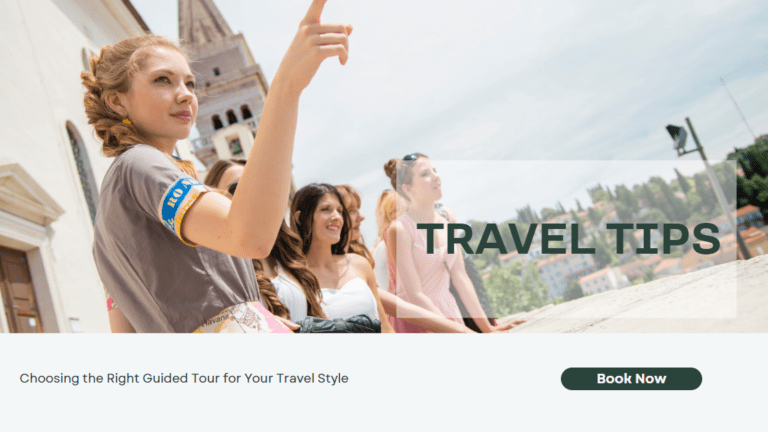
Choosing the Right Guided Tour for Your Travel Style
Step-by-Step Guide: How to Choose the Right Guided Tour for You When choosing a guided tour, you must consider…


What is a tour operator and how does it work?
The tour operator is an integral component of tourism , yet many people are unclear about what a tour operator actually is or what they do.
In this article I will explain what a tour operator is and why tour operators are important. I will also talk about what the difference between a tour operator and a travel agent is, as well as the different types of tour operators.
What is a tour operator?
Definitions of tour operator, importance of tour operators, the difference between a tour operator and a travel agent, what does a tour operator do, products and services sold by tour operators, inbound tour operators, outbound tour operators, domestic tour operators, ground tour operators, the association of independent tour operators, the tour operator: to conclude.
Tour operators are inextricably linked to the package holiday model. The tour operator is the person or organisation who creates the package. A travel agency is then used to sell the package holiday.
In the chain of distribution , the tour operator is represented by the term ‘wholesaler’. This is because the tour operator is responsible for purchasing products of services in bulk and then redistributing them as a packaged product to consumers.
To put it simply, a tour operator is the person or organisation who takes the individual elements of a holiday (e.g. transfer, hotel, transport) and packages these together.
The types of package vary. Most commonly, tour operators are associated with mass tourism and the traditional package holiday market. However, tour operators do also play an important role in the production of niche tourism products and services too.
If you’re looking for a formal definition of a tour operator with a reputable source, you may want to reference Polyther, who in 1993, defined the tour operator as;
‘[an organisation or person] who has the responsibility of putting the tour ingredients together, marketing it, making reservations and handling actual operation’.
Similarly, Holloway (1992) states that;
tour operations undertake a distinct function in the tourism industry, they purchase separate e lements of tourism products/services and combine them into a package tour which they sell directly or indirectly to the tourists .
The Organisation for Economic and Cultural Development (OECD) define a tour operator as follows;
‘Tour operators are businesses that combine two or more travel services (e.g., transport, accommodation, meals, entertainment, sightseeing) and sell them through travel agencies or directly to final consumers as a single product (called a package tour) for a global price. The components of a package tour might be pre-established or can result from an “a la carte” procedure, in which the visitor decides the combination of services he/she wishes to acquire.’
Tour operators are an important part of the tourism industry .
Tour operators make the logistics of organising a holiday much easier for the consumer. This makes people more likely to travel, more often.
Tour operators have a lot of power. If they choose to sell holidays in a particular location, for example, then that location will receive many of the associated positive and negative economic impacts of tourism .
Tour operators are often vertically or horizontally integrated with other organisations, such as travel agents and airlines. This allows for easier management and distribution of products.
Tour operators typically build holidays en masse. This means that economies of scale play a key role in driving down prices- the more you produce the cheaper the product becomes! This is obviously beneficial to the consumer and helps travel agents to have a competitive advantage when selling holidays.
Many people are not aware that a travel agent and a tour operator are actually two totally different organisations and they are not aware of the difference between a tour operator and a travel agent.
In fact, it is quite easy to understand this difference!
A tour operator is the organisation which puts the different elements of a holiday together. And the travel agent is the organisation who sells it to the consumer.
Whilst this differentiation is pretty easy to comprehend, it is easy to understand why people get tour operators and travel agents confused. This is largely because many organisations will operate under the same company. For example, TUI has a tour operator and a travel agent (and an airline too). As a result, many people do not realise that in actual fact, there are two separate organisations doing two separate jobs.

Ultimately, a tour operator is responsible for putting the different elements of a holiday together into a commodified package.
To do this, there are a number of different roles and responsibilities that tour operator staff will have. This includes:
- Data analysis- which destinations will sell best, how many holidays should they sell etc
- Assessing suitability of accommodation, transfer and transport options
- Liaising with stakeholders e.g. coach operators, airlines, hoteliers and resort representatives
- Negotiating contracts
- Confirming reservations with airlines/hotels
- Managing and responding to customer feedback
- Undertaking market research
- Production of marketing material
- Providing pricing information
- Handling bookings, invoicing and issuing of tickets
- Working with travel consultants from different travel agencies to put holiday packages together
Tour operators have a number of products and services that they sell, depending on their specific business model, business intentions and target market. A tour operator will typically package together two of more elements to form a packaged product, which is then sold at an inclusive price.
Examples include:
- Package holidays
- Accommodation
- Information on destinations
- Representative service in resorts
Types of tour operator
Tour operators come in all shapes and sizes. Some are large, multinational organisations and other are small, independent business.
Different types of tour operators develop products for different types of tourism . This can include the mass market, niche tourism market, special interest tourism, the luxury market, tailor-made products and dynamic packages .

There are four different types of tour operators, which I will explain below.
- Inbound Tour Operators
- Outbound Tour Operators
- Domestic Tour Operators
- Ground Operators

An inbound tour operator is one who facilitates inbound tourism .
The aim of an inbound tour operator is to bring tourists in to a particular country or countries.
Inbound tour operators will often collaborate with local travel agencies and transport operators to facilitate travel arrangements for their customers.
Inbound tour operator example: A group of German tourists conduct a tour of China, encompassing a visit to Shanghai , Hangzhou and the Yellow Mountains . The tour operator who organises their travel is Chinese-based company China Highlights . This company is based locally in China and they offer local, Chinese tours.
An outbound tour operator is one who facilitates outbound tourism .
The aim of an outbound tour operator is to send tourists out of a particular country or countries.
Outbound tour operators will often collaborate with foreign travel agencies and transport operators to facilitate travel arrangements for their customers.
Outbound tour operator example : A family of four from Liverpool, UK want to book an all-inclusive summer sun holiday in Alicante. They book through TUI , the largest tour operator in Britain, who specialises in outbound travel. They are based in the UK, but they work with foreign partners to facilitate holidays overseas.
A domestic tour operator is one who facilitates domestic tourism .
The aim of a domestic tour operator is to organise travel within a particular country or countries.
Domestic tour operators will often collaborate with domestic travel agencies and transport operators to facilitate travel arrangements for their customers. Domestic tour operators will often also serve the inbound tourism market.
Domestic tour operator example : A group of twenty-something boys from Chicago want to travel to Florida for the spring break holiday. They want to do a tour of the local attractions in the area and have some time to relax on the beach . They organise their travel through the tour company, Trek America . Staff at this company are experts in domestic travel within the USA.
A ground tour operator is an organisation who dopes the ground work as grass roots level.
Many tour operators do not have connections in all places around the world, therefore they build a network of connections to help them run their business.
Essentially, some of the work is passed on to a third party, known as a ground operator. This work may include negotiating local contracts, liaising with local suppliers and providing market data, amongst other things.
This is especially common for small tour operators.
You may also hear ground tour operators referred to as handling operators or handling agents.
Ground tour operator example : A backpacker wants to ‘give something back’ and book a volunteer tourism holiday in Kerala. She wanted to use a known and trusted tour operator to book her trip so she booked it with Intrepid Travel . Intrepid Travel create and sell adventure holidays all over the world, and it is impossible for them to have contacts and every staff in every corner of the globe. Therefore they work with local ground operators, who do the work on the ground. In this instance, the ground organisation is Iris Travel – a tour operator based in Kerela, India.
The Association of Independent Tour Operators , abbreviated as AITO, is a travel industry trade group (like ABTA or ATOL) based in Britain. They launched in 1976.
The AITO represents around 120 independent tour operators across 200 countries.
These tour operators provide access to a huge range of activities including city breaks, safaris, luxury holidays and much more. The AITO is based in Twickenham, south-west London.
The AITO does a variety of things. Most importantly, you can be reassured that your holiday is well-protected thanks to the Association of Independent Tour Operators.
They assess every member financially as well as by their own business practice code before granting membership; this means that you are guaranteed clear and accurate descriptions of holidays as well as tour standards that are consistently monitored.
Tour operators are an important part of the tourism industry, and with AITO, you have added security when booking your travels through a tour operator. Hopefully after reading this article you are now confident with what a tour operator is, how these organisations work and the different types of tour operators operating the market.
If you liked this article, why not take a look at these too?
- Types of travel agents | Understanding tourism
- What is e-tourism and how is it changing travel?
- 10 jobs in travel and tourism that will be BIG in 2022 and beyond
- What does the World Travel and Tourism Council do?
- Dictionaries home
- American English
- Collocations
- German-English
- Grammar home
- Practical English Usage
- Learn & Practise Grammar (Beta)
- Word Lists home
- My Word Lists
- Recent additions
- Resources home
- Text Checker
Definition of package tour noun from the Oxford Advanced Learner's Dictionary
- package tour
- self-catering
Questions about grammar and vocabulary?
Find the answers with Practical English Usage online, your indispensable guide to problems in English.
Other results
Nearby words.

- Mo, 18.01.2021
Individual trip vs. package tour: these are the differences that you need to know!
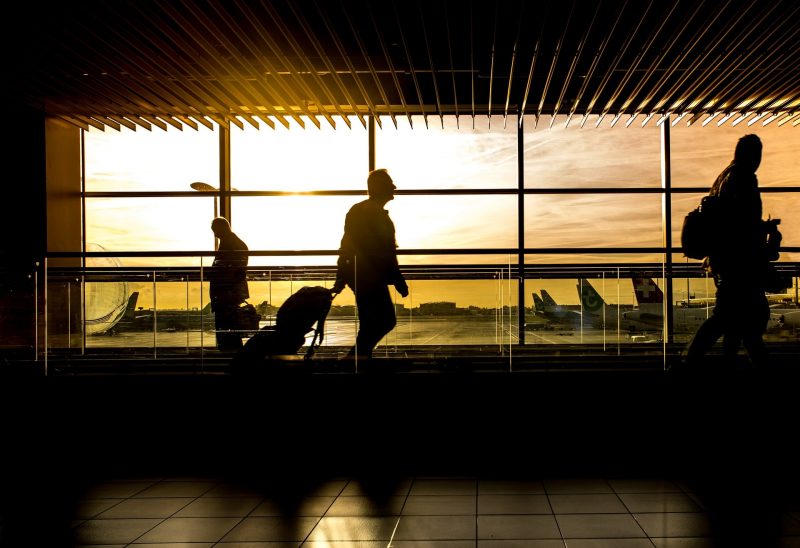
- Last update:

- Invite for a coffee!
Two terms appear again and again in the media: package travel and individual travel. What did the two terms actually mean? What are the differences and what do you have to pay attention to? Aviation.Direct answers exactly these questions on this page and provides valuable tips that you should consider when booking your trip.
First of all, the most important tip: Compare the prices! The internet is not always the place for the best prices. Sometimes you get a bargain at the travel agency around the corner or if you book directly at the hotel (for example by telephone) they have a great deal for you.
Travel completely individually
As the name suggests, individual trips are trips that you put together and book yourself. You book your flight with an airline, if you want yours Rental car with one of the many providers, your hotel directly in the accommodation or via a booking platform and, if necessary, transfers or tickets directly from the service provider or via an agent.
The advantage of individual trips is of course that you can choose and book every detail yourself. You can get hold of the cheapest airline tickets and are absolutely free to put together the building blocks of your trip. You can save a lot of money compared to a package tour, but sometimes you can also pay heavily, because the organizers often have very good contracts with airlines and hotels. It depends on the individual case, so you should definitely compare the prices.
However, individual trips also have a decisive disadvantage: You have no insolvency protection. If the airline or hotel you booked goes bankrupt, your money can be gone. If you book within 24 hours of purchasing the ticket via the airline's links, this can result in a connected travel service, which must then be insured against insolvency in accordance with the package travel guidelines. Pay close attention to the small print as there are hooks and eyes.
Especially in times of Corona there are valuable tips that you should consider when putting together an individual trip:
- Check whether you are allowed to enter the country at all.
- Keep an eye on the current situation in the destination country, but also bear in mind that the government of your home country could declare your holiday destination a risk region and you may have to be quarantined after your return.
- If possible, book a rebookable or, even better, a refundable rate with the airline. Sometimes it is more expensive, but you are on the safe side if you cannot travel at short notice due to COVID measures.
- Only reserve rooms in the hotel that you can cancel shortly before you travel. If possible, choose the payment at the hotel option.
- Reserve services such as rental cars, tickets or transfers just before you start your journey. Don't worry, you will get a rental car. If possible, do not pay a deposit for rental cars, but book tariffs with payment on site. More tips on rental cars at this link .
- Make sure that you have all the documents you need for entry and, if necessary, QR codes with you. Otherwise you run the risk that your vacation will end at the airport and the airline will refuse you transport or you will be refused entry in the destination country.
- If you want to take out travel insurance, please find out exactly what is actually covered and under which circumstances the insurer is completely free of benefits. This can be the case with travel warnings of the highest levels. Have your most important questions answered in writing or by email before you close.
Travel all-inclusive and get everything from a single source
It is a little different with package tours because you buy your trip from a single source and only have one contractual partner. At the same time, you benefit from the fact that your money is protected in the event of the organizer's bankruptcy.
One of the biggest advantages of package tours is that there are extensive legal regulations. These are quite consumer-friendly. Your money is - as mentioned - secured and under certain circumstances you can withdraw and get your deposit back. There is also the possibility that you can subsequently assert various travel deficiencies and request a price reduction. Especially in times of Corona, the package tour is the better choice, because you can invoke your rights at home, have only one contact person and do not have to deal with many individual service providers and local law. More details here .
The main disadvantage, however, is that the trip cannot be put together quite so individually. However, many organizers offer attractive modules and no one prevents you from organizing excursions or tickets yourself. Please note, however, that if you book through your organizer, there is cover, what you book elsewhere is not covered.
With package tours, it makes no difference at all whether you book at the travel agency around the corner, through an internet broker or directly with the tour operator via the web or by telephone. Your rights remain the same. Tip: Compare prices and don't think that everything is always cheaper on the internet. Especially when it comes to package tours, the good old travel agency around the corner often has the cheapest offer for you and that has another advantage for you: you have a personal contact who you can turn to if you have any problems.
Pay attention to the following points when booking package tours, especially in times of Corona:
- Check if you are allowed to enter the country and keep an eye on the situation. Also make sure that your home country declares the holiday region a risk area and that you may have to be in quarantine when you return.
- Don't cancel too early! Only shortly before departure (about a week in advance) can you object to the free withdrawal with full refund can claim. Before that, it can happen to you that you have to pay hefty cancellation fees.
- Make the final payment shortly before your departure. In order to avoid any reminder fees, explain your reasons for this to the organizer. Preferably in writing by registered mail.
- Always compare prices. The travel agency around the corner could be cheaper than online providers.
- Do not buy any travel insurance that is offered to you immediately! Compare the prices and services and please find out exactly what is actually covered and under which circumstances the insurer is completely free of services. This can be the case with travel warnings of the highest levels. Get answers to your most important questions in writing or by email before closing.
- Make sure you get your security certificate from the organizer, agent or travel agency. On this you will find important data on how you can get your money in the event of bankruptcy.
- Be sure to read the cancellation clauses and the costs due in the event of cancellation. Some organizers have very customer-friendly conditions, others more like gag contracts.
Leave a Comment Cancel reply
Your e-mail address will not be published. Required fields are marked with * marked
Save my name, email and website in this browser for the next time I comment.
This website uses Akismet to reduce spam. Learn more about how your comment data is processed .
Editor of this article:
Granite pireci.

[email protected]
Nobody likes paywalls - not even aviation.direct.

About the editor

Tour Operators
Tour operator is an organization, firm, or company who buys individual travel components, separately from their suppliers and combines them into a package tour, which is sold with their own price tag to the public directly or through middlemen, is called a Tour Operator .
More precise tour operators are primarily responsible for delivering and performing the services specified in a given package tour. They can provide these services themselves as some have their own cars and coaches, hotels, and other travel-related services or can obtain these from the other suppliers. That is why they are called manufacturers of tourism products .
Tour operators are sometimes called wholesalers but this is partially true because a wholesaler buys goods and services in bulk at his own account to prepare a tour package and then retails it through the travel agencies or directly to clients. However, a tour operator who has his own one or more tourists products components, (SOTC, TCI, Thomas Cook, Indo Asia KUONI formulates a new tourist product for example ‘ inclusive tours .’
Tour operators generally offer a variety of package tours to cater to the needs of different kinds of travelers.
Definitions of Tour Operator
Poyther (1993) defines, “tour operator is one who has the responsibility of putting the tour ingredients together, marketing it, making reservations and handling actual operation.”
Holloway (1992) stated that tour operations undertake a distinct function in the tourism industry, they purchase separate elements of tourism products/services and combine them into a package tour which they sell directly or indirectly to the tourists.
Today, tour operators have become highly competitive. They endeavor to achieve a high volume of turnover, and maximum International and domestic market share by effectively operating. Moreover, the success of many developed and developing nations as tourists destinations depend heavily on a tour operator’s ability to attract tourists, development and promotion of tourism plant, diversification of tourism product and their social responsibilities to develop a remote and backward area.
Types of Tour Operators
Tour operators are basically categorized into four types . These are categories on the basis of their nature of the business and its operations.
Inbound Tour Operators
Outbound tour operators, domestic tour operators.
- Ground Operators
These are also known as incoming tour operators . Technically, the operators who receive guests, clients/tourists, and handle arrangements in the host country are c alled inbound tour operators . For example, a group of American Tourists is coming through TCI Ltd. to India and the company makes arrangements and handles the group in India then TCI is called an inbound tour operator.
Incidentally, the inbound traffic to the country for the last two decades has been decreasing. Essentially the tour operators need to adopt innovative marketing strategies and should introduce a special interest tour to cater the special needs of Japanese, Americans, French and British people.
Tour operator who promote tours for foreign destinations, maybe business tour or leisure tour is called outbound tour operators . For example a group of American tourists going to a trip of India and Thomas Cook handle arrangement in America like as ticket reservation, hotel booking etc. then Thomas Cook is called Outbound Tour operators in the context of America.
Domestic tour operators are those who assemble, combine tourist components into inclusive tours and sell it to the domestic travelers. In general, these tour operators provide travel services within the tourist’s native country.
The domestic tour operators operate within the boundary of the home country and offer package tour to the travelers viz. Domestic inclusive tours or independent tours.
Ground Operators/Destination Management Companies
These are commonly known as handling agencies and their main function is to organize tour arrangements for incoming tourists on the behalf of overseas operators. Let us take the case of India as a destination that – has a varied culture.
When a tour operator himself promotes beach holidays, wildlife holidays, adventure tours, heritage tours at the different places, the difficulty arises. It is the ground operator then who by handling the incoming travelers in the same season but at different places ensures that the entire operation is according to the package tours or agreements.
Sometime when a handling agency is at a prominent tourist place i.e., Delhi and it has to make arrangements to Goa, then it contracts (If it has no office of its own) with a local operator (known as excursion agent) to handle the arrangement on his behalf.
Why Ground Operators?
Obviously, the tour operation companies do not have close contact with suppliers, governments, destinations and so on. It leaves no choice with the companies but to appoint handling agencies at the destinations. The main reasons are:
- Introduction of new products or plant to promote an exotic destination.
- Lack of Government regulations.
- Lack of personal contract.
- Language problem.
- The company cannot establish its own branch.
Recognizing the very fact that the reputation, performance, and profitability of tour company in its own market largely depends on the efficiency and effectiveness of ground operators, it has because necessary for the company to consider various factors before the selection of a handling agency, they are:
- Size of business
- Professional staff
- Length of business
- Area of operation/Product line
- Market share
Functions of Ground Tour Operators
Over the years of functions and activities of the destination, companies have changed drastically to cope with the changing environment of the tourism industry. In fact, today’s destination companies have become more professional and are bound to provide personalized travel services to the tourists. The following functions are performed by ground tours operators:
- Land arrangement
- Contract and Negotiate with other vendors
- Handling of Arrival and departure procedure
- Planning and organizing local package tour
- Escorting the tourists
- Providing market information
- Costing and pricing package tour
Practically, if we see the working of the travel agencies and tour operators in the industry we find that most of the organizations are performing different types of activities like the retail travel agency , wholesale travel agency, and tour operators.
The travel agency business is no longer an amateurism. Over the last two decades, the pattern and structure of travel agencies have changed to meet tough challenges in the international market. Today, small-scale agencies are finding the travel industry increasingly complex.
Thus, the small and medium scale travel agencies are disappearing or merging or falling instead of rising. On the other hand, a new concept has also emerged i.e. tour operation business . The tour operation business is new but a maturing business at the global level.
Functions of Tour Operator
A tour operator is an organization, firm, or person who is responsible for the actual arrangement of transport and accommodation facilities on any tour or vacations. They are also responsible for operating and providing vacation through contracting, booking, and packaging together of the various components of the tour such as hotel, transportation, meals, guides, optional tours, and sometimes flights.
A tour operator is like a service provider, providing the most convenient option for tourists to stay, visit, as well as leave from the city. A tour operator owns a high volume of travel services across carriers, services, and accommodation. Some most important functions of the tour operators are following as:
Planning a Tour
The most important functions of the tour operators are planning a tour. Tour operators plan a tour and make tour itinerary which contains the identification of the origin, destination and all the stopping point in a traveler’s tours. A prospective tour operator also gives advice to intending tourists in various types of tour programmes, which they may choose for their leisure or commercial travel.
Making Tour Package
Tour operator buys individual travel components, separately from there suppliers and combines them into a package tour. Tour operators make tour package by assembling various travel components into a final product that is called tour package which is sold to tourist with own price tag. Making tour packages is also an important function of Tour Operator.
Arranging a Tour
Tour operators make tour package and also arrange a tour according to tourist demands. Tour operators arrange the tour package and various tourists activities to provide the best experience to tourists/traveler.
Travel Information
Whatever the size of tour operators, it has provided necessary travel information to the tourists. This task is utterly difficult and very complicated. A tour operator must give up-to-date, accurate and timely information regarding destinations, modes of travel, accommodation, sightseeing, immigration, health and security rules about various permits required to travel in a particular area etc.
Reservation
It is a very important function of all type tour operators and travel agencies. Tour operator makes all the reservation by making linkages with accommodation sector, transport sector and other entertainment organizations to reserve rooms, and seats in cultural programmes and transportation.
Travel Management
Tour operators manage tour from beginning to the end of the tour. A tour operator has the responsibility to look after the finer details of a vacation or tour such as hotel, accommodation, meals, conveyance etc. Tour operators provide travel guide, escorting services and arrange all travel related needs and wants.
Evaluate the Option Available
Tour operators evaluate all available options to provide a unique or unforgettable travel experience to tourists during their journey. Tour operators evaluate the various options available for a tour package and provide best of them to tourists.
Tour Operators makes tour packages and promote them into various tourists markets at domestic as well international level. Tour operators promote a travel destination to attract a large group of tourists at domestic as well as international level. In the promotion of tourist destination, tour operators play a key role. Travel agencies or tour operators are called as image builder of a country.
Sales and Marketing
Tour operators do sales and marketing of tourist products. Tour operators buy individual travel components, separately and combine them into a tour package, which is sold with their own price tag to the public directly. Tour operators do marketing of tourist destinations and tourism product to attracts the attention of the tourists/travelers.
Taking Care of Glitch
Tours operators are also called handling agencies which handles tour package and take care of all the glitches and problems arises during a tour package. Tour operators fix the glitches and provide the best available alternative to tourists during their journey.
Importance of Tour Operators
Tours operators play a key role in the tourism sector. Tour operators create tourist products, promote them a finally sold them to tourists.
Tour operators provide the best and competitive price to the tourist. Tour operators negotiate with suppliers of tourism products such as hotels, airlines and provide the best possible price to the tourist. Tour operators buy tourist products in bulk and get huge discounts from suppliers. So that they provide tourist products at a cheap price.
Tour operators organized a tour in the best way. They personalize and make sure each and every component of the tour is well-taken care. Tour operators provide the best travel experience during a tour. Tour operators save tourists time and money.
Tour operators provide immediate support systems at the host country as well as a foreign land. When tourists travel to a foreign land and things get uncertain, maybe its a health or loss of documents and need to return back or change of travel plan. A qualified tour operator takes care of all these unseen events with efficiency.
Tour operator caters to the needs of tourists on the based on their taste of travel. Tour operator provides all the best available option according to tourist needs and demands
Difference between Travel Agent and Tour Operator
There is a lot of confusion about the difference between tour operators and travel agents what exactly makes them different. The main difference between a Travel agent and Tour operator are following as:
- A travel agent is a person who has full knowledge of tourist product – destinations, modes of travel, climate, accommodation, and other areas of the service sector. He acts on the behalf of the product providers/principals and in return get a commission.
- Tour operator is an organization, firm, or company that buys individual travel components, separately from their suppliers and combines them into a package tour, which is sold with their own price tag to the public directly or through middlemen.
- Tour operators are like wholesalers and travel agents are the retailers.
- A tour operator makes the package holidays up and the travel agents sell them on.
- Tour operator taking up the bulk of the responsibilities and his fee is obviously much greater than a travel agent.
- A tour operator has the responsibility to look after the finer details of a vacation or tour such as hotel, accommodation, meals, conveyance, etc.
The wholesale travel agencies may offer or operate the package tours or may specialize in developing tours for inbound as well as outbound travelers. They are often referred to as tour operators, but there is a difference between Wholesale Travel Agencies and Tour operators .

What is Tour Cost? Components, Types of Tour Costs
- Post last modified: 19 January 2023
- Reading time: 21 mins read
- Post category: Uncategorized
What is Tour Cost?
Tour cost means the total cost incurred or attributed to a tour product or service. It is the sum total of costs incurred to create or formulate a tour package. Since tour is an assembled product, its costing involves bulk purchase.
Therefore the cost of the tour packages is determined according to the client requirement or company strategy. As the quality of the product /service and the price of that product go side by side, hence in travel trade the cost unit is a package tour because a company sells a large number of packages.
Table of Content
- 0.1 What is Tour Cost?
- 1.1 Research and Development Cost
- 1.2 Travel Cost
- 1.3 Accommodation Cost
- 1.4 Food and Beverage Cost
- 1.5 Sightseeing and Activity Cost
- 1.6 Marketing Cost
- 1.7 Administrative Cost
- 1.8 Miscellaneous Costs
- 2.1 Direct costs
- 2.2 Indirect tour costs
- 2.3 Fixed costs
The identification of cost unit will help to cost manager to separate the cost into smaller sub-divisions attributable to the tourism industry. A tour package is a combination of various tourism services/ goods like transport, accommodation and other facilities en route and at the destination.
However, in reality, it has only two basic components;
- Travel services
- Ground services.
Components of Tour Cost
The cost of a tour package includes:
Research and Development Cost
It is the cost incurred when planning a tour package. It includes the cost of the tour planner, manager and staff of the company who are involved in tour planning. The main activities in the research and planning phase are:
- Study the economic factors influencing the future development of package tours.
- Identification of likely selection of destinations.
- Make an in-depth comparison of alternative destinations.
These phases require in-depth research work and hence this requires a good amount of money. The tour planner, marketing researchers etc have to work rigorously for the tour planning activities. The main activities in the tour development are:
Destination Research
The decision to develop and formulate a new package is a multi-stage process that involves various steps. Normally, the idea for a new product comes either from the tour executive within the company due to a review of the questionnaire completed by the previous tour members or because of the political, social and economic developments in a particular area.
When a tour planner sees that a large number of clients are interested in taking a trip to particular destinations, naturally, those destinations become the nucleus of a new tour concept. Moreover, the forecasting of future development is affected by changing circumstances in the market.
Some of these circumstances are:
- Change in tourist patterns
- Transportation cost
- Accommodation and other cost
- Exchange rate prevailing
- Inflationary conditions
- Competitive environment
- Extent and support from airlines serving the routes
- Support from national / regional tourist office of the destination
- Political stability of the country
- Attribute to and state’s control over mass tourism within the country
- The relation between the host and tourist generating countries
Market Research
Since tour package is a complete tourism product, obviously, before formulating this product, market research should be done and the data to be analyzed and assessed in a systematic manner. Market research provides us the answer to the following questions.
- What is the size of tourism market?
- Who are the existing clients?
- Who will be the potential buyers?
- Who are the competitors’ – their area and strategy?
- What price will the customer accept?
- What facilities are available and required?
- What are the constraints? (License, permission, taxes, finance, restrictions, taxes etc)
Once we know the basic components of a package tour, distribution channels, market conditions, constraints etc., we can develop a marketing strategy. It also enables the smooth functioning of the tour company and also offers a clear picture of the tour programme.
The planning stage also includes the cost of the Familiarization Tour (FAM) and any other costs incurred to develop a new or old package tour. Generally, a tour planner works on several tour packages. The allocation of cost is based on two methods
Both the methods are important. Long-term cost deals with the tour planning and development and the second deals with initial tour development. So for determining research and development costs, the tour management must project this cost at first. Secondly, the company should divide the tour into a minimum of 10 or 12 tours. This figure is added to the total cost of the package sold.
Travel Cost
This cost includes the cost of travel in different modes like air, road, rail, land etc. In other words, it is the total cost incurred for travel from a point of origin to a point of destination through any mode of travel. A commercial air ticket sold on a regularly scheduled flight is a simple pricing procedure. The prices quoted include all the applicable charges.
Tour operators have to worry about airport transfers too. Pricing charter flights is little more complicated. Frequently, modes of transport are combined or used sequentially to achieve the objectives of the tour.
For example, there are fly/drive tours that use a combination of aeroplanes and rental cars. Some tours offer fly/cruise packages, wherein the travellers fly to a port of embarkation and then board a cruise ship for most of the tour.
Other commonly identified types of tours feature the name of the dominant mode of transport. For example, a rail tour uses train as the mode of transportation. Perhaps the most widely recognized form of touring is motor coach tour, which as the name implies, utilizes buses or motor coaches to move the participants from destination to destination and to visit sightseeing attractions along the way. Most motor coaches have 46 to 48 seats.
Accommodation Cost
Virtually all package tours that are longer than a single day include some type of accommodation. Accommodations range from a simple tent to luxurious hotels and resorts and as such can be tailored to fit to any tour member’s budget. Typically participants choose accommodation from different price ranges. It is the price paid to acquire a stay in any accommodation unit.
The accommodation costs depend on the negotiation between the hotel management and the tour manager/ planner, and other elements of hotel products like, food, beverage and amenities etc. Once the cost is finalized, it is added to the total cost of the package tours. Hotels, motels resorts, tribal huts, homestays etc provide accommodation facilities for the guests and tariffs vary considerably depending upon the type, standards, services, facilities, location etc.
Transfer cost Transfers are any mode of transport that shuttles participants from their point of arrival, frequently an airport, to their first accommodation, typically a hotel. It is incurred for transferring the client from the airport to the hotel or vice versa.
The cost is according to the contract with transport companies on mileage or duration basis. Virtually any type of transfer is possible, such as a shuttle bus between a railway station and a cruise ship. The transfer is an important component in the tour cost when the destinations are distant from one another.
Food and Beverage Cost
Lodging meal plans are also important among the tour cost components. Wide ranges of meal plans are available on package tours. The level and type of plan is one of the factors that significantly affect the cost of a tour.
- With American plan, tour participants receive all three daily meals as part of their tour package. The American Plan (AP) is common in cruise packages that visit more remote or isolated destinations.
- Tour participants, under the Modified American Pan (MAP), receive breakfast and one other main meal, usually dinner.
- Dinner can be either the mid-day meal or the evening meal depending on the country and tour. The room plus a continental breakfast is called a Continental Plan (CP). With this type of plan, tour participants receive a daily light breakfast such as bread, jams, fruits, cereal, coffee and tea. Continental plans vary from country to country, however, in certain countries; a more extensive menu is available and may include meats, cheeses and even boiled eggs.
- European plan does not include any meals and present a significant saving to the tour operator. Under this type of plan, tour participants are required to pay for all of their own meals. Lodging properties that use meal plan pricing quote prices per person, not per room.
- In Bermuda Plan (BP), tour participants receive a full cooked breakfast, but no other meals are provided.
It is important to note that one way of saving money is by reducing or eliminating meals that are included as part of the tour. The type of meal is also an important consideration in tour cost. For example, a tour operator who offers five lunches and five dinners as part of the package is offering more than an operator who offers ten breakfasts.
Similarly, a tour operator who allows participants’ unlimited menu choices at a destination is more than one who restricts the participants to a selection of three main dishes or a set menu. It is important to pay attention to theses details when costing the food and beverage component.
Sightseeing and Activity Cost
This constitutes a major portion of the tour cost which makes the clients satisfactory or unsatisfactory. Usually, this cost is calculated per person. Generally, a package tour includes sightseeing as an important component.
For Example, a 2 Nights and 3 days package to Sri Lanka will definitely include a half-day or full day sightseeing as a compulsory part of the package. This component takes a major fraction of the package cost and again varies with the mode of transportation used. The destination vendors offer these activities less expensively to a group.
Marketing Cost
In this world of globalization, no organization can withstand without marketing. Proper marketing should be done for the success of any product. Tourism products are not different from this. Package tours and ancillary products have to be marketed properly, which constitutes a major fraction of the company’s budget.
The marketing budget of the company should be allocated in such a way that it reaches the audience more deeply and effectively. Promotional activities include advertisement, sales promotion activities, public relation, telemarketing, direct marketing etc. All marketing effort should be based on AIDA principle, i.e., it should create attraction, generate interest, arouse desire and initiate action. For this, cost should not be a constraint.
Administrative Cost
The administrative department plays a vital role in a tour company, which handles all the background paperwork and office functions including:
- Looking after telephones, faxes, telexes, personal; computers etc.
- Handling the post
- Dispatching documents to clients.
- Sending paper print outs (tickets, rooming lists, etc) to the concerned departments.
- Looking after office maintenance, cleaning etc.
- Staffing the reception and switchboard.
Handling of the above administrative functions requires a good fraction of the cost. Administrative cost is the expenditure incurred by the tour company in formulating the policy and strategy for directing the organization and controlling the operations.
Administrative costs and incidentals include things like brochure printing, postage, charge for telephone charges, baggage, nametags, flight bags, etc. In the era of competition and revolutionary developments in information technology, potential clients have to be contacted and served. So mobile phones to the executives, Internet, events and cultural galas for the industry people like travel agents, travel executives, travel writers etc are indispensable.
These costs are incurred in the general and financial management of travel business such as office expenses, salary to staff, audit, insurance/legal expenses etc are also important. These are fixed costs and the allocation of these expenses to a particular tour or service may be too much as there are many tours/ services that a company can offer at a particular time. Usually, it occupies 15-20 % of the cost of sale.
Miscellaneous Costs
The miscellaneous costs vary from organization to organization. These costs include portage at airports, tips at airports, hotels etc, entrance fees, insurance premeuims, literature and other materials, and gifts given to tour members at the beginning and end of a tour, welcome drink, welcoming event/ reception etc. These costs are determined by adding up the per-person cost of each item.
However, the percentage of each cost to total tour cost is different for a new tour company as compared to an old tour company. In the case of a new tour/ travel company, that has not developed its reputation; the miscellaneous expenses figure should be between 10 to 15 per cent of the total tour cost. In case of an established tour company, this figure should be one to two per cent of the total cost.
Types of Tour Costs
The tour cost can be classified into two categories depending upon how it affects total cost structure of a tour.
Direct costs
Direct costs are those, which are incurred and conveniently identified with a particular package tour such as accommodation costs, travel costs, food and beverage costs, sightseeing costs etc. These costs are readily traceable to a specific tour.
For example, the cost of a guest’s food and accommodation will directly reflect in his tour cost. The price differs when he undertakes his travel by car, flight, motor coach etc. Suppose a guest opts for Modified American Plan during his stay in a five-star hotel, the total package cost will be less compared to the package cost of a guest who opts for American plan.
Indirect tour costs
There are many costs involved in making and marketing tours that are not so readily identifiable as the direct tours costs. Indirect tour costs are those costs which are incurred for the benefit of a number of tours that are offered by a travel company during a year or a particular period but cannot be conveniently identified with particular tour costs such as marketing costs, tour planner’s costs, financial and legal costs, administrative expenses, FAM tour costs, medical expenses, insurances and so forth.
The total tour package will be based on a fraction of all these indirect costs but are not able to easily identify with a particular tour.
Fixed costs
Fixed costs are those, which are incurred even when one is selling or not selling any tour package. Maintaining a motor coach would add to fixed cost since some expenses are incurred whether or not one or all seats are occupied.
When a tourist/ client or a group of people go on a tour, one has to incur some expenses such as FAM tour, cost of a tour bus, research and development expenditures, marketing expenses, tour manager’s and tour planner’s salary etc. These are all included in fixed costs. These costs are constant in total amount, but fluctuate per person/ per package as the level changes.
Fixed cost is also known as period cost because it is dependent on time rather than on output. The management of a tour company can control these costs. Fixed costs are those costs that remain stable regardless of how many tours are sold or how much revenue enters the business.
Rent, interest on mortgage, insurance and costs associated with minimal staffing levels (including the owner’s draw or salary) are the primarily fixed costs of a tour operator. If a tour operator is unable to pay fixed costs, the door must close.
Variable Costs
In contrast to fixed tour costs, some tour costs tend to vary in direct proportion to the level of sales or number of tour participants. Costs, which are incurred only if a passenger actually uses the service, are variable costs. Tour variable costs are those, which vary with the number of tourists participating in the tour. Examples of tour variable costs include admissions to attractions, hotel rooms, and meals. For example, food and beverage costs, the cost of the gifts, brochures, tourist taxes, entrance fees, room costs etc. play an important role in making a tour costly or cheap. The cost is also known as product cost because it is based on product rather than on time.
Air transport would be a variable cost. This service would not be paid for unless the seat was occupied, except when certain fares are used which cannot be refunded to the passenger, e.g., for group travel when the minimum group size is specified.
Or when a tourist /client or a group of people go on a tour, one has to bear some expenses such as ‘FAM tour, cost of a tour bus, research and development expenditure, marketing expenses, tour manager’s and tour planner’s salary etc. These are all included in fixed costs. These fixed tour costs are constant in total amount but fluctuate per person /per package as the level changes.
Please Share This Share this content
- Opens in a new window X
- Opens in a new window Facebook
- Opens in a new window Pinterest
- Opens in a new window LinkedIn
- Opens in a new window Reddit
- Opens in a new window WhatsApp
You Might Also Like
What is tourism product definition, types, characteristics, cereals and pulses, what is breakfast types, table setting, cover, order of service, international tourism organisations, what is stock in food production components, categories and types, uses, preparation, evaluating quality, what is travel itinerary types, steps in planning, do & don’t, leave a reply cancel reply.
Save my name, email, and website in this browser for the next time I comment.
- Cambridge Dictionary +Plus
Meaning of package tour in English
Your browser doesn't support HTML5 audio
- activity holiday
- air corridor
- amenity kit
- caravanning
- high season
- phrase book
- post-holiday
- put something up
- ranger station
- tourist trap
- trailer park
package tour | Business English
Examples of package tour, translations of package tour.
Get a quick, free translation!

Word of the Day
side hustle
a piece of work or a job that you get paid for doing in addition to doing your main job

Fakes and forgeries (Things that are not what they seem to be)

Learn more with +Plus
- Recent and Recommended {{#preferredDictionaries}} {{name}} {{/preferredDictionaries}}
- Definitions Clear explanations of natural written and spoken English English Learner’s Dictionary Essential British English Essential American English
- Grammar and thesaurus Usage explanations of natural written and spoken English Grammar Thesaurus
- Pronunciation British and American pronunciations with audio English Pronunciation
- English–Chinese (Simplified) Chinese (Simplified)–English
- English–Chinese (Traditional) Chinese (Traditional)–English
- English–Dutch Dutch–English
- English–French French–English
- English–German German–English
- English–Indonesian Indonesian–English
- English–Italian Italian–English
- English–Japanese Japanese–English
- English–Norwegian Norwegian–English
- English–Polish Polish–English
- English–Portuguese Portuguese–English
- English–Spanish Spanish–English
- English–Swedish Swedish–English
- Dictionary +Plus Word Lists
- English Noun
- Business Noun
- Translations
- All translations
To add package tour to a word list please sign up or log in.
Add package tour to one of your lists below, or create a new one.
{{message}}
Something went wrong.
There was a problem sending your report.
- ABBREVIATIONS
- BIOGRAPHIES
- CALCULATORS
- CONVERSIONS
- DEFINITIONS

Vocabulary
What does package tour mean?
Definitions for package tour pack·age tour, this dictionary definitions page includes all the possible meanings, example usage and translations of the word package tour ., princeton's wordnet rate this definition: 1.0 / 1 vote.
package tour, package holiday noun
a tour arranged by a travel agent; transportation and food and lodging are all provided at an inclusive price
Wikipedia Rate this definition: 0.0 / 0 votes
Package tour
A package tour, package vacation, or package holiday comprises transport and accommodation advertised and sold together by a vendor known as a tour operator. Other services may be provided such as a rental car, activities or outings during the holiday. Transport can be via automobile, buses, charter airline, and may also include travel between areas as part of the holiday. Package holidays are a form of product bundling. Package holidays are organised by a tour operator and sold to a consumer by a travel agent. Some travel agents are employees of tour operators, others are independent.
ChatGPT Rate this definition: 0.0 / 0 votes
package tour
A package tour is a type of travel arrangement that typically includes multiple services like transportation, accommodation, meals, and amenities, bundled together by an organized travel agency or tour company for a single all-inclusive price. It is usually designed and scheduled according to a pre-determined itinerary and may also include activities like tours and sightseeing.
Wikidata Rate this definition: 3.0 / 2 votes
A package tour or package holiday consists of transport and accommodation advertised and sold together by a vendor known as a tour operator. Other services may be provided such a rental car, activities or outings during the holiday. Transport can be via charter airline to a foreign country, and may also include travel between areas as part of the holiday. Package holidays are a form of product bundling. Package holidays are organised by a tour operator and sold to a consumer by a travel agent. Some travel agents are employees of tour operators, others are independent.
Matched Categories
How to pronounce package tour.
Alex US English David US English Mark US English Daniel British Libby British Mia British Karen Australian Hayley Australian Natasha Australian Veena Indian Priya Indian Neerja Indian Zira US English Oliver British Wendy British Fred US English Tessa South African
How to say package tour in sign language?
Chaldean Numerology
The numerical value of package tour in Chaldean Numerology is: 6
Pythagorean Numerology
The numerical value of package tour in Pythagorean Numerology is: 1
- ^ Princeton's WordNet http://wordnetweb.princeton.edu/perl/webwn?s=package tour
- ^ Wikipedia https://en.wikipedia.org/wiki/Package_Tour
- ^ ChatGPT https://chat.openai.com
- ^ Wikidata https://www.wikidata.org/w/index.php?search=package tour
Word of the Day
Would you like us to send you a free new word definition delivered to your inbox daily.
Please enter your email address:
Citation
Use the citation below to add this definition to your bibliography:.
Style: MLA Chicago APA
"package tour." Definitions.net. STANDS4 LLC, 2024. Web. 29 Jun 2024. < https://www.definitions.net/definition/package+tour >.
Discuss these package tour definitions with the community:
Report Comment
We're doing our best to make sure our content is useful, accurate and safe. If by any chance you spot an inappropriate comment while navigating through our website please use this form to let us know, and we'll take care of it shortly.
You need to be logged in to favorite .
Create a new account.
Your name: * Required
Your email address: * Required
Pick a user name: * Required
Username: * Required
Password: * Required
Forgot your password? Retrieve it
Are we missing a good definition for package tour ? Don't keep it to yourself...
Image credit, the web's largest resource for, definitions & translations, a member of the stands4 network, free, no signup required :, add to chrome, add to firefox, browse definitions.net, are you a words master, not established or confirmed, Nearby & related entries:.
- package holiday noun
- package loan
- package management system
- package manager
- package store noun
- package tour noun
- packageable
- packaged adj
- packaged forces
- packaged goods noun
- packaged petroleum product
Alternative searches for package tour :
- Search for package tour on Amazon

The Daily Show Fan Page

Explore the latest interviews, correspondent coverage, best-of moments and more from The Daily Show.
Extended Interviews

The Daily Show Tickets
Attend a Live Taping
Find out how you can see The Daily Show live and in-person as a member of the studio audience.
Best of Jon Stewart

The Weekly Show with Jon Stewart
New Episodes Thursdays
Jon Stewart and special guests tackle complex issues.
Powerful Politicos

The Daily Show Shop
Great Things Are in Store
Become the proud owner of exclusive gear, including clothing, drinkware and must-have accessories.
About The Daily Show

COMMENTS
Wide-variety of the tour package. Provide bulk business to organizers. Tourism. Tour Package is a pre-arrangement, prepaid trip that combines two or more travel components like airfare, airport transfer, accommodation, and other services. Practically, to define the tour package concept is complex one rather understand.
A package tour, package vacation, or package holiday comprises transport and accommodation advertised and sold together by a vendor known as a tour operator.Other services may be provided such as a rental car, activities or outings during the holiday.Transport can be via automobile, buses, charter airline, and may also include travel between areas as part of the holiday.
package tour: [noun] a group of services related to travel or vacations that are sold together for one price.
PACKAGE TOUR definition: 1. a holiday at a fixed price in which the travel company arranges your travel, hotels, and…. Learn more.
Obviously, the answer depends on the intended market. Some tours offer a minimum of elements; others are all-inclusive. Let's take a look at some options: Transportation. Most tours include transportation as part of the package. A fly/drive package combines air transportation and a car rental. An air/sea or fly/cruise combines air and ship ...
A package tour refers to a pre-arranged travel itinerary or vacation package that combines various travel components into a single purchase. These components typically include transportation, accommodation, activities, meals, and sometimes additional services, all bundled together and sold as a complete package by a tour operator or travel ...
Transportation: Package tours often include round-trip transportation from the traveler's home to the destination. This may involve flights, train tickets, bus transfers, or other modes of transportation. Accommodation: Accommodation is a crucial part of any package tour. Travelers are typically provided with pre-booked hotel rooms, resorts, or ...
When designing your package tour, consider the following steps: Define Your Audience: Know who you are designing the tour for. Curate Unique Experiences: Differentiate your offering with unique experiences. Price Competitively: Position your pricing based on the value offered.
The specific features of tourism marketing are: The demand for tour package is highly elastic and seasonal in nature. Tour package is a combination of various service ingredient. Designing, developing and marketing of tour package a number of intermediaries are involved. Bed experience at one level can spoil the entire image of the package as ...
package tour (noun) package tour noun. plural package tours. Britannica Dictionary definition of PACKAGE TOUR. [count] : a group of services related to travel or vacations that are sold together for one price. They got the bus tour, hotel room, and plane ticket as a package tour. — called also package deal, (British) package holiday.
Accommodation: A tour package typically includes accommodation in a hotel, resort, or other lodging facilities. The type of accommodation provided will depend on the tour package you select. Transportation: Transportation is another essential component of a tour package. It can include flights, trains, buses, and even private cars or vans.
The types of package vary. Most commonly, tour operators are associated with mass tourism and the traditional package holiday market. However, tour operators do also play an important role in the production of niche tourism products and services too. Definitions of tour operator. If you're looking for a formal definition of a tour operator ...
Definition of package tour noun in Oxford Advanced Learner's Dictionary. Meaning, pronunciation, picture, example sentences, grammar, usage notes, synonyms and more.
Especially in times of Corona, the package tour is the better choice, because you can invoke your rights at home, have only one contact person and do not have to deal with many individual service providers and local law. More details here. The main disadvantage, however, is that the trip cannot be put together quite so individually.
Tour operator is an organization, firm, or company who buys individual travel components, separately from their suppliers and combines them into a package tour, which is sold with their own price tag to the public directly or through middlemen, is called a Tour Operator. More precise tour operators are primarily responsible for delivering and ...
package tour: 1 n a tour arranged by a travel agent; transportation and food and lodging are all provided at an inclusive price Synonyms: package holiday Type of: circuit , tour a journey or route all the way around a particular place or area
Noun. 1. package tour - a tour arranged by a travel agent; transportation and food and lodging are all provided at an inclusive price. package holiday. tour, circuit - a journey or route all the way around a particular place or area; "they took an extended tour of Europe"; "we took a quick circuit of the park"; "a ten-day coach circuit of the ...
Package tour definition: a planned tour in which one fee is charged for all expenses. See examples of PACKAGE TOUR used in a sentence.
Tour cost means the total cost incurred or attributed to a tour product or service. It is the sum total of costs incurred to create or formulate a tour package. Since tour is an assembled product, its costing involves bulk purchase. Therefore the cost of the tour packages is determined according to the client requirement or company strategy.
PACKAGE TOUR meaning: 1. a holiday at a fixed price in which the travel company arranges your travel, hotels, and…. Learn more.
Definition of package tour in the Definitions.net dictionary. Meaning of package tour. Information and translations of package tour in the most comprehensive dictionary definitions resource on the web.
tour package means a scheduled event or series of events purchased through us and occurring immediately before, immediately after, or during the cruise dates printed on your confirmation. tour package means a travel package, which includes all components of the Subscriber 's travel arrangements (transportation, accommodation, etc.).
The source for fans of The Daily Show, featuring exclusive interviews, correspondent highlights, the Ears Edition podcast, The Daily Show shop, ticket information and more.